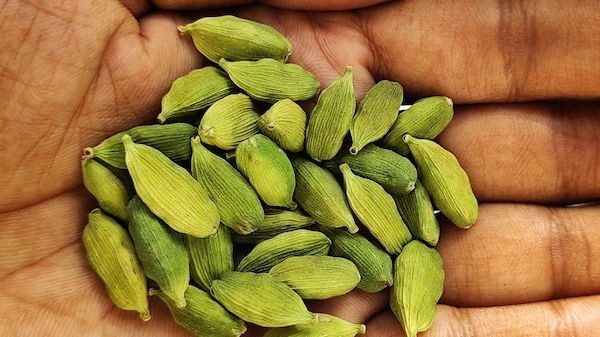Protein Deficiency Symptoms and Food Sources
Learn about the common symptoms of protein deficiency and discover a comprehensive list of protein-rich food sources to ensure a balanced and healthy diet.


Introduction
Protein is an essential nutrient that plays a crucial role in building muscles, repairing tissues, and supporting immune function. When your body doesn’t get enough protein, it can lead to various health problems. In this article, we’ll discuss the symptoms of protein deficiency, its causes, and the best food sources to ensure you stay healthy and strong.
What is Protein Deficiency?
Protein deficiency occurs when your body doesn’t get enough protein from your diet to meet its needs. This can happen due to poor dietary choices, certain health conditions, or increased protein requirements (such as during pregnancy or intense physical activity).
Common Symptoms of Protein Deficiency
If your body lacks protein, you may experience the following symptoms:
1. Weakness and Fatigue
Protein is vital for muscle strength and energy. A deficiency can lead to muscle loss, weakness, and constant tiredness.
2. Slow Healing of Wounds
Protein helps repair tissues. If cuts, bruises, or injuries take longer than usual to heal, it could be a sign of low protein levels.
3. Hair, Skin, and Nail Problems
Brittle nails, thinning hair, dry skin, or frequent breakouts may indicate protein deficiency since these tissues rely on protein for growth and repair.
4. Frequent Illnesses
Protein supports immune function. If you get sick often, your body might not be producing enough antibodies due to insufficient protein.
5. Swelling (Edema)
Severe protein deficiency can cause fluid retention, leading to swelling in the legs, feet, or hands.
6. Hunger and Cravings
A lack of protein can make you feel hungry frequently, leading to cravings for sugary or highcarb foods.
7. Muscle Loss
Since muscles are primarily made of protein, a deficiency can cause muscle wasting, making you feel weaker over time.
Who is at Risk of Protein Deficiency?
Certain groups are more prone to protein deficiency, including:
Vegetarians/Vegans – If not careful with plantbased protein sources.
Elderly Individuals – Reduced appetite and difficulty digesting protein-rich foods.
People with Digestive Disorders – Conditions like Crohn’s disease or celiac disease can impair protein absorption.
Athletes or Highly Active Individuals – Increased protein needs due to muscle repair.
Pregnant or Breastfeeding Women – Higher protein requirements for fetal growth and milk production.
Health topic carousel:
Doctor's speciality: Nutrition
Text: Consult a Top Nutritionist
Best Food Sources of Protein
To prevent protein deficiency, include these protein-rich foods in your diet:
Animal-Based Protein Sources
Eggs – A complete protein with all essential amino acids.
Lean Meats – Chicken, turkey, and lean cuts of beef.
Fish – Salmon, tuna, and sardines (also rich in omega3 fatty acids).
Dairy Products – Milk, yogurt, cheese, and paneer.
Plant-Based Protein Sources
Sources of plant based protein include:
Lentils & Beans – Chickpeas, black beans, kidney beans, and dal.
Nuts & Seeds – Almonds, peanuts, chia seeds, and flaxseeds.
Soy Products – Tofu, tempeh, and edamame.
Whole Grains – Quinoa, oats, and brown rice.
Tips to Improve Protein Intake
Tips to improve protein intake:
1. Start Your Day with Protein – Include eggs, Greek yogurt, or a protein smoothie in breakfast.
2. Snack Smartly – Choose nuts, roasted chana, or hummus with veggies.
3. Combine Plant Proteins – Pair lentils with rice or beans with whole grains for complete protein.
4. Use Protein Supplements (if needed) – Whey or plant-based protein powders can help meet daily needs.
5. Consult a Nutritionist – If you’re unsure about your protein intake, seek professional advice.
When to See a Doctor?
If you experience severe symptoms like extreme fatigue, muscle loss, or swelling, consult a doctor. A simple blood test can check your protein levels.
Need Help? Book a Consultation Today!
If you suspect protein deficiency or need dietary guidance, Apollo 24|7 offers expert nutrition consultations. Schedule an appointment now for personalized advice.
Final Thoughts
Protein is essential for overall health, and a deficiency can lead to serious problems. By including a variety of protein-rich foods in your diet, you can maintain energy, muscle strength, and immunity. If you notice any symptoms of deficiency, take action early to prevent complications.
Stay healthy, stay strong!
Health topic carousel:
Doctor's speciality: Nutrition
Text: Consult a Top Nutritionist
Consult Top Nutritionists

Dr. Ramalinga Reddy
General Physician
5 Years • MBBS MD General medicine
Bengaluru
PRESTIGE SHANTHINIKETAN - SOCIETY CLINIC, Bengaluru
Dt. Ila Sharma
Clinical Nutritionist
18 Years • Master in food & Nutrition
Gurugram
VIPUL GREENS - SOCIETY CLINIC, Gurugram
Ms. Bhavana Shetty
Dietician
7 Years • DDHN & Masters in Clinical Nutrition & Dietetics
Bangalore
Apollo Sugar Clinic, Seetha circle bangalore, Bangalore
Dr Sumanth R
General Physician
2 Years • MBBS
Bengaluru
PRESTIGE SHANTHINIKETAN - SOCIETY CLINIC, Bengaluru
Dr. Sasikamalam
General Practitioner
1 Years • MBBS
COIMBATORE
Apollo Sugar Clinic Coimbatore, COIMBATORE
Consult Top Nutritionists

Dr. Ramalinga Reddy
General Physician
5 Years • MBBS MD General medicine
Bengaluru
PRESTIGE SHANTHINIKETAN - SOCIETY CLINIC, Bengaluru
Dt. Ila Sharma
Clinical Nutritionist
18 Years • Master in food & Nutrition
Gurugram
VIPUL GREENS - SOCIETY CLINIC, Gurugram
Ms. Bhavana Shetty
Dietician
7 Years • DDHN & Masters in Clinical Nutrition & Dietetics
Bangalore
Apollo Sugar Clinic, Seetha circle bangalore, Bangalore
Dr Sumanth R
General Physician
2 Years • MBBS
Bengaluru
PRESTIGE SHANTHINIKETAN - SOCIETY CLINIC, Bengaluru
Dr. Sasikamalam
General Practitioner
1 Years • MBBS
COIMBATORE
Apollo Sugar Clinic Coimbatore, COIMBATORE




